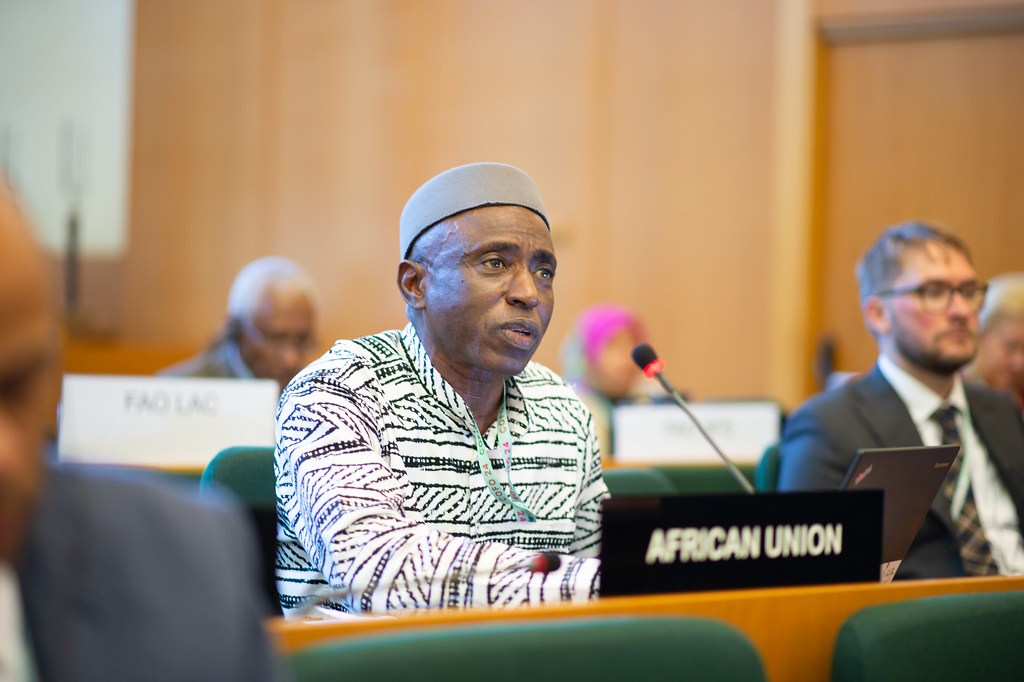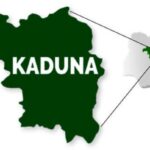Almami Dampha is the Senior Policy Officer of the African Union Commission (AU).He spoke on the dangers of illegal logging in Africa and how to address it and other environmental challenges.
What is your assessment of illegal logging of woods across Africa?
Well, it has been a very big problem for the past 8 to 10 years and we have seen it increasing over the years in many West African countries in particular because here we are talking about Pterocarpus erinaseus, a particular tree species that is very prevalent in many West African countries.
Over the last 10 years we has a huge amount of large-scale, unsustainable felling of these trees and mainly in response to markets in Asia, China in particular, so it is really becoming an ecological crisis in many West African countries.
Also in other parts of Africa, because the Pterocarpus erinaseus is quite a large family.There are other varieties of the plant species in other countries outside West Africa, Cameroon, Central Africa all the way down to South and East Africa.So it’s quite a very widely spread tree species on the continent’s savanna zone.
The concern now is that the rate of exploitation is unsustainable and will cause serious ecological problem in many of the countries, affecting livelihood in particular, and even causing civil unrest. It has already caused several number of deaths in many countries.It also promotes the spread of fire arms. It has become quite a very big source of concern in terms of security and stability in many of the communities where its logging is being done in a very unsustainable manner. In Guinea Bissau and Gambia, there are many instances of violence in the communities.
How do we address this issue of illegal logging?
To address this issue calls for a multi-facilitated programme.On the surface it may look simple but it is quite a complicated issue because we have the state, local communities and in between we have the individuals, the Chinese and also their local African counterparts.
Addressing it would need intervention at various levels: at the level of government in willing to strengthen the institutional framework at the national level supported by polices that are implementable and enforceable. The problem is not actually the lack of policies but the courage, willingness to implement them.
At the level of the community now, in many countries, communities are heavily involved in this and you cannot put a forest guard or an armed guard behind every tree, it is not possible, nobody or country in the world has that kind of manpower, so the challenge is how do we bring in the local communities.
The approach cannot be okay with a total ban, because it is connected to livelihood and then, it is not within the capacity of the state. The state doesn’t have that manpower to enforce many of these laws especially in the remote villages without the buying in of the communities. It is the communities that are actually living with the resources.So in an ideal situation the communities should be the managers of the resources.
Government sets the framework, the institutional policies, the legal policies to guide the local communities, but then in terms of leadership, the communities are very critical.This is part and parcel of the management structure, otherwise whatever we do, because we are desperate, we look for policy intervention, military intervention and this is not sustainable. If you put a policeman there, after three or four days he’ll join them, because they will buy him.
So the sustainable solution is getting the communities involved. Government must work out a solid agreement with the local communities in terms of benefits, because the communities are also living in a very difficult situation – poverty is rampant – and facing lots of problems and have resources.They have tasted these resources; they now know that these resources can improve their livelihood, so it would be very difficult.
So we need to have an inclusive and participatory approach to the management of these resources. Then the middlemen – again whether we call them the Chinese or whoever the outsiders are – African Union, ECOWAS have to engage them on regional basis by bilateral relations with these countries.
We need development partners, a strong partnership for that matter. It is beyond the capability of an individual country or an individual sub-region to tackle this problem.
The continent is said to be losing $17b annually, how did you arrive at that?
We arrived at these figures, not precisely from African treasuries because we know they didn’t have records, many of them are done off record, but then if you go to China, on arrival, these things are recorded so it’s nearly a paradox.The resources originated from us here but we don’t have the record, so you must source the information from outside but they are pretty reliable, very close estimates.
Now, how do we address this issue of lack of data in Africa, because most data we use are either from the UN or somewhere else?
Again, it’s a symptom of the insufficient capacity and then investment because data is not cheap to generate, analyze, archive or disseminate. It is costly investment, it calls for manpower and training. So our countries must see data as an important instrument for planning. It is very important so you need to invest, build the human capacity, build the research capabilities of national institutions and support the researchers in providing necessary logistics for them.
Without that we will be depending on partners outside for information and this is actually going to be very problematic for us because sometimes we don’t have this data at the time we need them and by the time we get them they are almost five or six years old, becoming at the point obsolete information. We need to augment our national capacity in terms of data generation and analysis as well as disseminating to the relevant users.
You have been on environmental issues across Africa, what do you think are the biggest environmental challenges in Africa and how do we address them?
I think they are so many, for example land degradation is becoming a major problem and has a direct bearing on our ability to feed ourselves.We don’t grow rice or groundnut in the air; we grow them on the land, so in many African countries we have a high rate of soil degradation, desertification, deforestation.This is a major problem compounded by climate change.The climate is changing rapidly, the rainfall pattern is no longer predictable, the amount of rain, frequency, distribution are all changing and confusing farmers.
It has been found that corruption is high in the area of natural resources, how do we address that?
There is no country in the world that subscribes to corruption; every country condemns it and every country has rules, punitive measures to control it, but then it is the application. So we need boldness in terms of governance to address corruption.
It is not just by lips service, you must be serious about it to address it. You need political commitment to address issues of corruption on a regular basis, not that once in a while you talk about it and forget it. The issue has to be addressed, especially in the natural resources sector as there are lots of statistics about the scale and management of corruption.

 Join Daily Trust WhatsApp Community For Quick Access To News and Happenings Around You.
Join Daily Trust WhatsApp Community For Quick Access To News and Happenings Around You.


